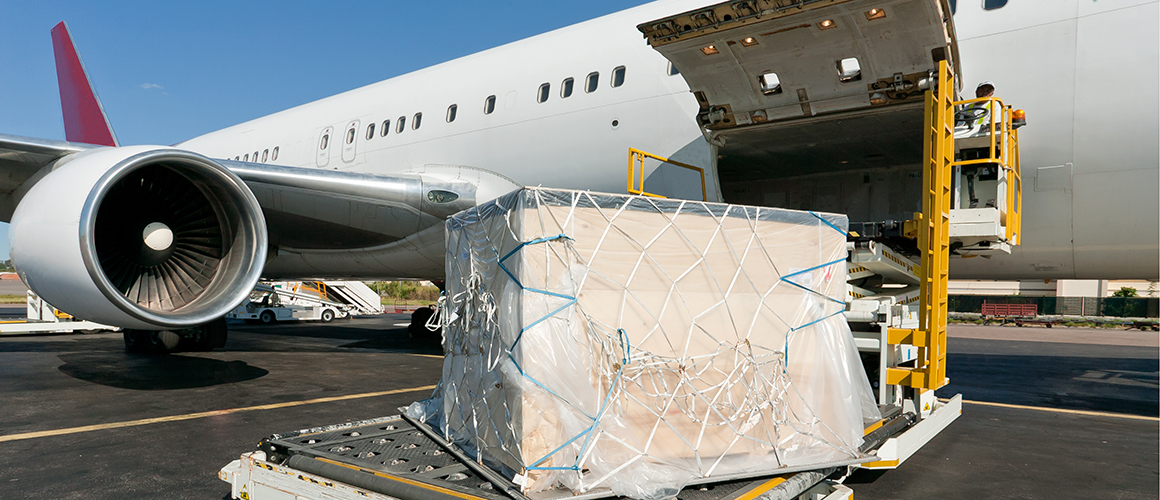Incoming changes to air freight security begin 1 March 2019
The Department of Home Affairs (DHA) intends to introduce new enhanced security procedures for air cargo – namely, that 100 per cent piece-level examination of all outbound international air cargo will apply from 1 March 2019, regardless of destination.
“Piece-level” refers to examination of export air cargo at the lowest level of consolidation (that is, each individual box, carton or other similar item) by a regulated air cargo agent (RACA) under an enhanced air cargo examination (EACE) notice.
This measure may lead to increased costs for the export of fresh produce by airfreight. The DHA has released a new countdown notice to allow exporters to prepare for the changes.
Australia introduced piece-level screening for airfreight exports to the United States from 1 July 2017, and it is considered the most effective way to address current and emerging threats to air cargo.
Currently 15 per cent (approx 87,000 tonnes) of all air cargo exports originating from Australia are fresh fruit and vegetables.
What does this mean for grower-exporters?
More information will become available over the coming weeks, however in the short-term, as a grower-exporter, you have a decision to make: become a ‘known consignor’ or utilise your freight forwarder to undertake the screening.
Becoming a ‘known consignor’
Known consignors must demonstrate that they have security measures and procedures in place and can secure their export air cargo from where it originates, until it is handed to another regulated business.
Further information on the requirements and application process to become a known consignor can be accessed on the DHA website.
The key benefit of becoming a known consignor is that cargo that originates from a known consignor, and is securely transported to the container terminal operator/RACA by the known consignor or an accredited air cargo agent, is considered to be piece-level examined and will not need to be examined again prior to being uplifted for export.
Note that your business may/may not be eligible to become a known consignor, and/or may be required to invest in security systems and features to satisfy the requirements.
Use freight forwarder
All cargo not originating from a known consignor will need to be security screened, and for most grower-exporters the logical facility for this to occur is at your freight forwarder, in addition to undertaking phytosanitary inspections and preparing export documentation.
You should speak to your freight forwarder to understand how they intend to undertake the piece-level security screening so you can understand how they will deal with your perishable cargo and any time-critical shipments.
Note that if your shipment requires screening, then screening costs will apply. It is currently unclear exactly how much will be charged for screening, and it is assumed that individual freight forwarders will set their own charges.
Key Messages from the DHA
The DHA is strengthening Australia’s aviation security arrangements to respond to the changing security environment.
100 per cent piece-level examination is being introduced for all outbound international cargo from 1 March 2019, and 100 per cent piece-level domestic air cargo screening is proposed to be phased in, with the highest priority being our major airports.
The DHA will work with industry to optimise the approach and consult widely to ensure proposed measures are commensurate with risk and cognisant of impacts to industry and communities.
Next steps
Additional information and further official advice from the DHA will become available shortly.
AUSVEG and the Australian Horticulture Exporters and Importers Association have now been included on the DHA consultation working group as horticulture representatives. This group also includes representatives from the freight forwarding community, airlines and container terminal operators.
We will continue to provide updated information as it comes to hand in the coming weeks.
In the meantime, grower-exporters should review the options above and determine if your business is eligible to become a known consignor.
More information on the changes can be found on the Department of Agriculture and Water Resources’ website. If you have any questions regarding these new security screening requirements, please contact AUSVEG on 03 9882 0277 or via email at export@ausveg.com.au.
This post appeared in the AUSVEG Weekly Update published 27 November 2018. Subscribe to the Update using our online form to receive the latest industry news in your inbox every week!

